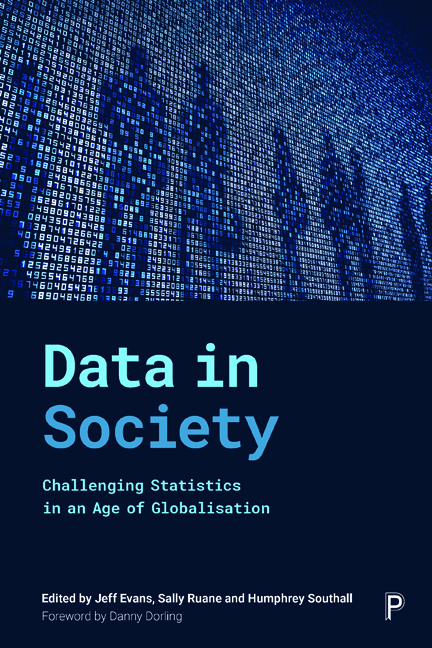Book contents
- Frontmatter
- Contents
- List of figures, tables and boxes
- Notes on contributors
- Foreword
- Preface
- General introduction
- Part I How data are changing
- Part II Counting in a globalised world
- Part III Statistics and the changing role of the state
- Part IV Economic life
- Part V Inequalities in health and wellbeing
- Part VI Advancing social progress through critical statistical literacy
- Epilogue: progressive ways ahead
- Index
16 - The financial system: money makes the world go around
Published online by Cambridge University Press: 30 April 2022
- Frontmatter
- Contents
- List of figures, tables and boxes
- Notes on contributors
- Foreword
- Preface
- General introduction
- Part I How data are changing
- Part II Counting in a globalised world
- Part III Statistics and the changing role of the state
- Part IV Economic life
- Part V Inequalities in health and wellbeing
- Part VI Advancing social progress through critical statistical literacy
- Epilogue: progressive ways ahead
- Index
Summary
Introduction
Money is an abstract concept of value that facilitates social exchange relationships (see for example Schrauwers, 2011). It is reified by systems that enable the performance of monetary exchange through accepted tokens (real or virtual), procedures, shared understandings and beliefs, organisations and rules. These financial systems are the discursively framed expression of social relationships, and therefore expressions of power (Hertz, 1998). As well as being socially constructed, financial systems are socially constructing – their daily operations shape behaviours, thinking and actions.
The monetary exchange transactions that financial systems enable are simply data, mostly existing as numbers inside virtual systems. Bitcoin, a so-called cryptocurrency, is a good example – it is created by and stored as digital algorithms secured by computer encryption. Unlike physical commodities, data can easily be hidden from or accessed by multiple social actors. Obscuring financial transactions inhibits social control of the activities they enable, regardless of their social consequences. Societal knowledge of this data allows regulation, providing a counterpoint to the exercise of power. The datafied transactions of the financial system therefore facilitate the operation of power and provide the means to regulate it. Financial systems are then an epitome of ‘data in society’.
Financial systems have long been influential nationally and globally. Polanyi (2001 [1944]) noted that the international gold standard was one of four pillars on which the nineteenth century Western world rested, and its collapse precipitated the geopolitical catastrophes of the first half of the twentieth century. Polanyi's primary focus was the fetishisation of markets, to the maintenance of which financial systems are essential. Since Polanyi's book, global markets have been radically transformed. Fast flows of money, commodities, goods and services criss-cross the globe. Nation states, less in the ascendancy (Harvey, 2005), are locked in power games with globalised market actors that rapidly move capital between jurisdictions in search of profit. Such activities require increasingly complex financial systems to sustain them. Darker forces also need sophisticated global financial systems: non-state political forces such as ISIS have imperative needs for significant funds. And states such as Russia use globalised financial systems to pay for influence that confers state power and yields significant financial advantage. Business, state politics, extrastate forces, criminal activities and significant personal power are intertwined through financial systems that are, at heart, data systems.
- Type
- Chapter
- Information
- Data in SocietyChallenging Statistics in an Age of Globalisation, pp. 213 - 224Publisher: Bristol University PressPrint publication year: 2019

